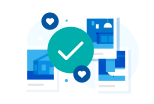Beyond the Mortgage: Lesser-Known Home Buying Costs

You know buying a home typically includes a down payment and mortgage, but are you aware of other costs you may need to plan for? Learn about some common additional expenses that can come up during and after your home buying journey.
If you’re buying your first home or it’s just been a while since you purchased your previous home, you don’t want to be caught off guard by other unexpected costs aside from the home itself. From moving fees to keeping up with utilities, you’ll want to budget accordingly for other potential expenses. So, let’s take a look at some of the upfront and ongoing costs that come with buying a home, from closing costs and beyond.

Key Takeaways
- In addition to your down payment being due at closing, your closing costs will include fees from the lender for servicing your loan.
- Most lenders require an active homeowners insurance policy.
- Your lender may require an escrow account that you pay into for property taxes, so you don’t have to pay a large amount all at once.
- If you are part of a Homeowners Association community, you typically will pay fees for services and amenities provided by the HOA organization.

Upfront Costs
A down payment, if required for your loan, is a commonly known cost in the home buying process. It’s a percentage of the mortgage’s principal amount that is required to be paid to your lender by closing. Note, however, that the down payment is separate from closing costs. So, what is usually included in the closing costs? And what other expenses may come up? Let’s dive in.
Home Inspection Fee
Before your official closing, you may want to have a home inspection to help you identify if there are any potential issues with the home. You can hire a certified inspector to evaluate the home’s condition before moving in.
Closing Costs
Closing costs cover the fees for services in originating and processing your home loan. They can vary depending on your loan type and location, but the closing disclosure document you receive before your scheduled closing date will list out your loan’s specific costs. You’ll likely see origination, appraisal, document preparation, survey and attorney fees, along with items like a title search or flood certification.
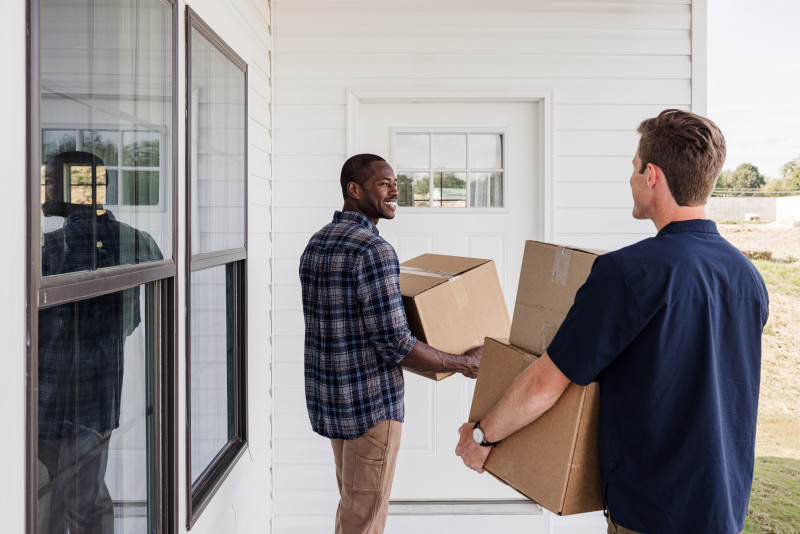
Moving Fees
If you hire professional movers or rent a moving truck, you will need to cover those costs. Even if family and friends are helping you move, make sure to plan for packing materials like boxes and tape. You may also need to arrange to store your furniture and belongings before you can move into your new home, whether you’re renting a storage unit or keeping them in a loved one’s garage.
Furnishing Your Home
With a new home, you may want to update some of your furniture or need to buy more if you’ll have additional space now. Clayton homes come standard with appliances like a fridge and stove, but this may be the perfect time to upgrade your washing machine and dryer set or get that sectional you’ve been eyeing. If your new home has a front porch, you’re probably excited about investing in patio furniture, a porch swing or rocking chairs. You may also want to redecorate with different curtains, rugs and more. Keep changes like that in mind when buying a new home so you can prepare for them.
Additions to the Property
You may want to make additions to your property shortly after you move in or down the line. Items like a swimming pool, a fence around your yard or a shed will require upfront costs as well. And when making any additions to your home, like a patio, deck or carport, don’t forget about getting any permits you need beforehand. We also always recommend using professionals to build or install those additions. You should also notify your homeowners insurer and make updates to your policy as needed, especially for installing a pool on your property.
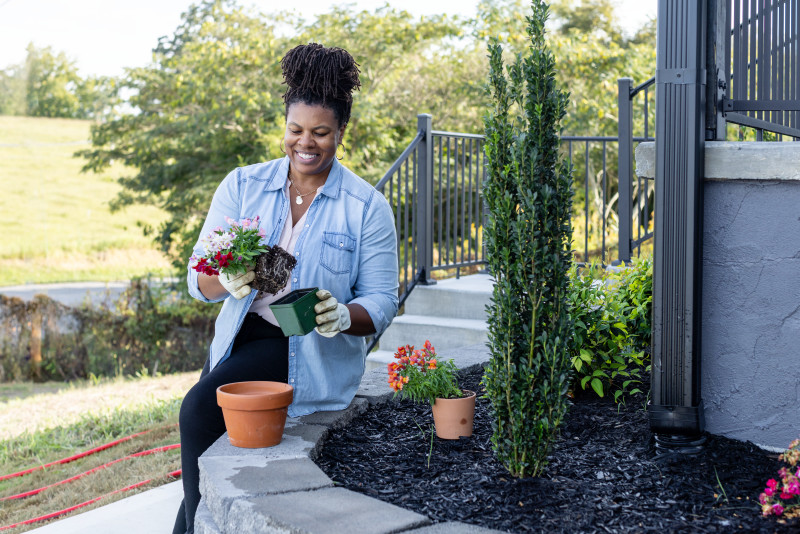
Landscaping
If you’re having your new manufactured home placed on land, your yard may need some landscaping once your home is set up, like planting grass or adding flower beds. And if you’re moving from an apartment to a home with a lawn, don’t forget about the costs of ongoing yard maintenance. You may need to set aside money for a lawn servicing company or tools like a mower or leaf blower to tend to the lawn yourself. And if you’re looking to plant trees or a garden, you’ll need to hire a landscaping company or plan to purchase materials and tools for those as well.
Ongoing Costs
Besides your monthly mortgage payment, there will be additional costs to budget for now that you own a home. Most of these expenses will be about protecting, maintaining and running your home. Here is a list of some common ones:
Homeowners Insurance
Home insurance, also known as hazard insurance, protects from losses and damage to your property caused by perils, which are exposures to dangers or threats. Depending on your insurance provider, these perils can include events such as fire, burglary or burst pipes. Most mortgage lenders require you to have home insurance and generally require proof that your policy is active.
Private Mortgage Insurance
Depending on your lender and loan type, private mortgage insurance may be required if your down payment is less than 20% of the purchase price of the home.
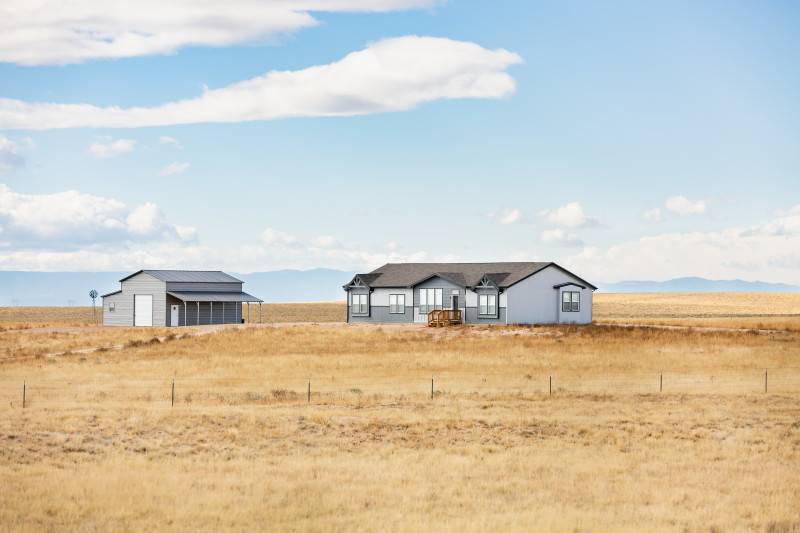
Property Taxes
In the United States, property taxes are paid by property owners to local governments and are typically based on the value of the property that is owned. Generally, if you own both the land your home is on and the manufactured home itself, you will pay all property taxes associated with your property.
If your manufactured home will be located on land you own, your chosen lender will likely offer or require an escrow for the property taxes. This means you will pay a portion of the property taxes each month into a mortgage escrow account and your lender then pays the property taxes from the escrow account when the taxes are due. If the manufactured home is not permanently attached to the land, your lender may still escrow for the personal property tax of the home itself.
Escrow
Mortgage escrow is a process where additional funds are collected with your mortgage payments to pay for other expenses associated with homeownership. The additional money is set aside by your mortgage servicer and used to pay things like property taxes, home insurance premiums and flood insurance premiums, if you have them, so you don’t have to scramble to pay a large tax bill or insurance premium all at once later.
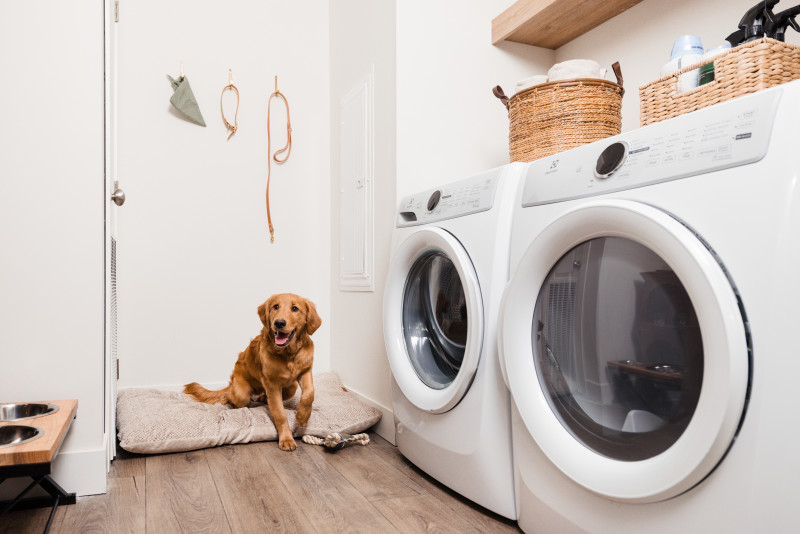
Utilities and Maintenance
As the homeowner, you will be responsible for paying for utilities and any needed maintenance. This can include, but is not limited to, services such as water, electric, gas, sewer, internet, phone, trash and recycling, cable TV or streaming subscriptions, pest prevention treatments, outdoor and indoor cleaning, and security.
Homeowners Association Fees
If your home is located in an HOA residential community or neighborhood, you may pay monthly or annual fees for access and upkeep of the shared amenities and services like a pool, community clubhouse, dog park, playground, fitness center, lawncare and landscaping, onsite security, parking and more.
We hope this post helps you feel more prepared about what costs to expect at closing and after moving into your new home. At Clayton, we know home buying is a big decision that can change your life, which is why we strive to give you the information and answers you need to be ready. And to discover more about different steps of the home buying process, you can get started by exploring the Home Investment category on our Studio blog.
Are you ready to find your dream home?
Start shopping now or find a home center in your area to learn more about Clayton Built® home options.By entering your email address, you agree to receive marketing emails from Clayton. Unsubscribe anytime.
© 1998-2025 Clayton.
